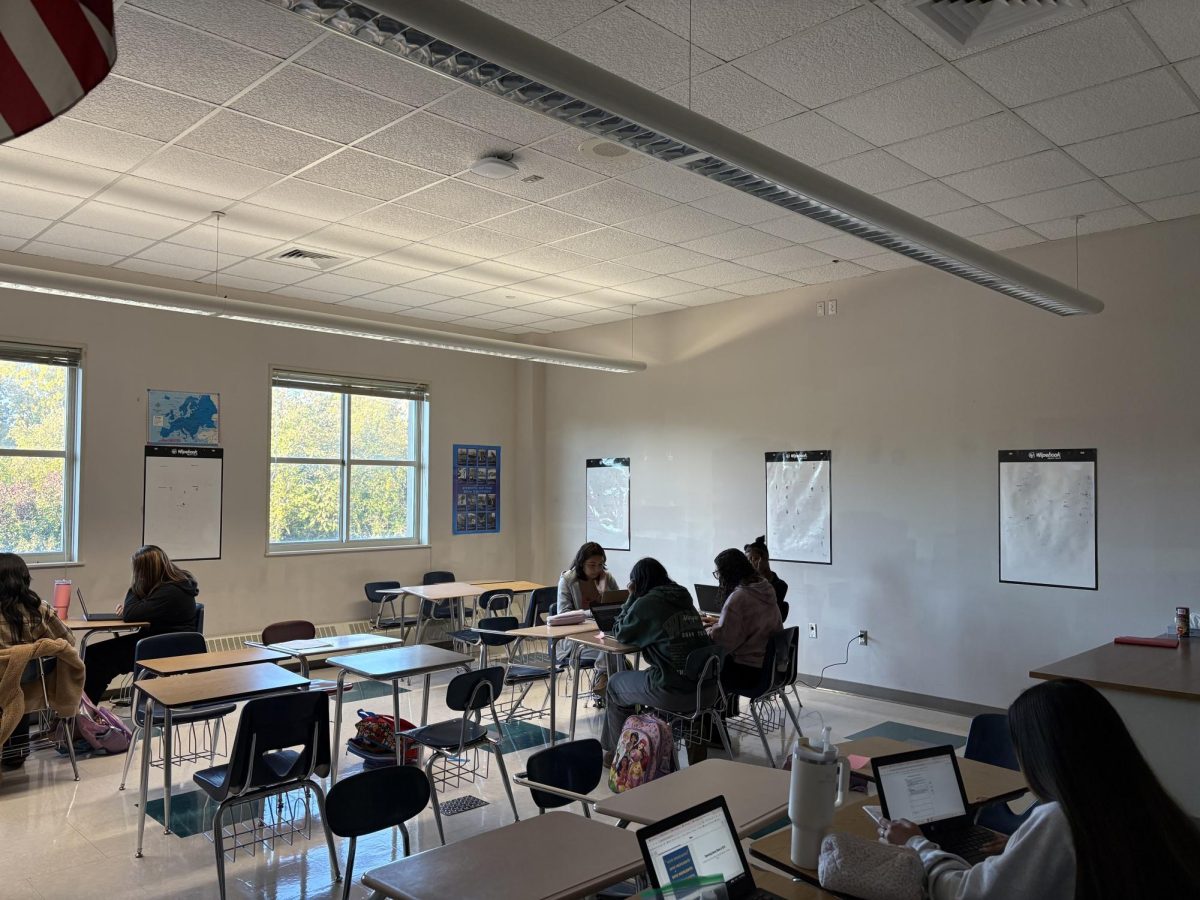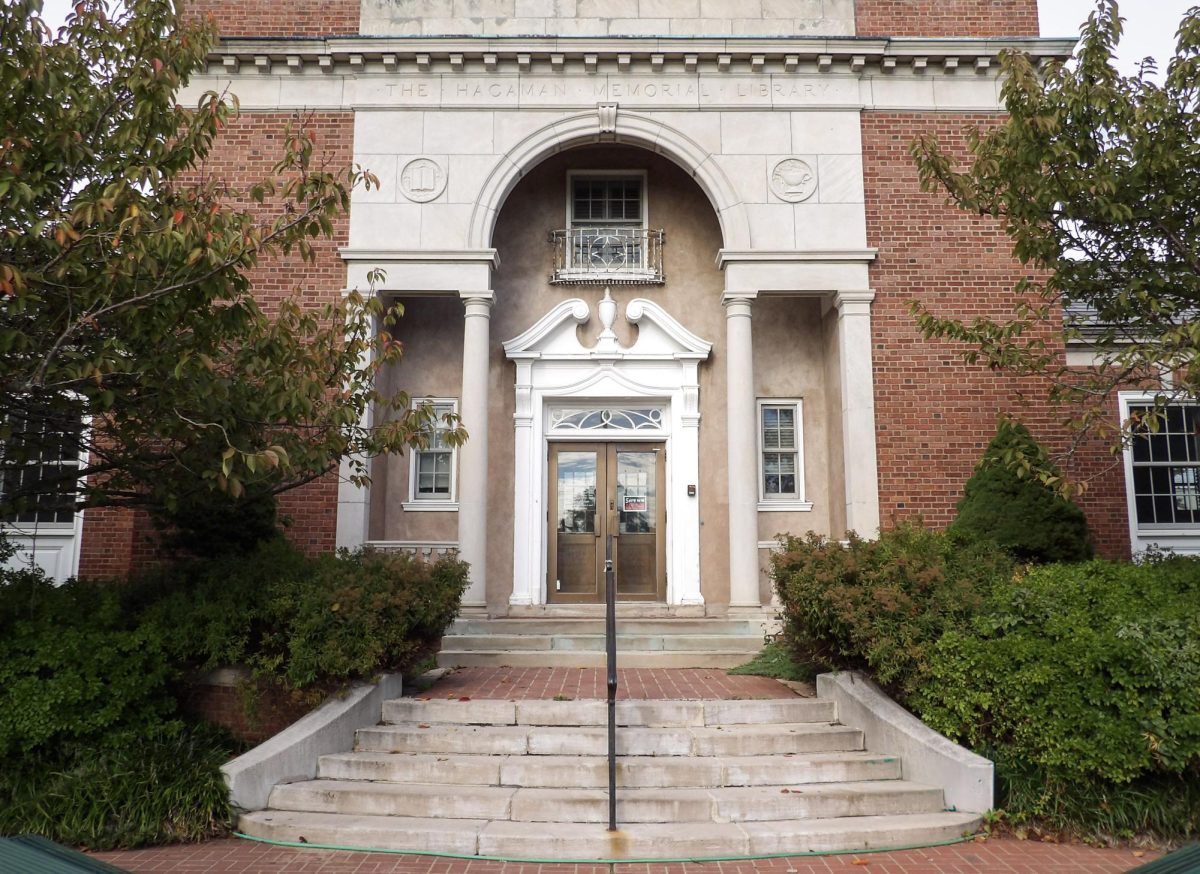As we head into May, AP Exams will be taking place May 6th-May 16th. Taking this course along with taking the exam have many benefits while also having some downsides. Is paying for the exam and taking these rigorous courses worth it?
EHHS offers 9 AP classes which are, AP Government and Politics, AP United States History, AP Biology, AP Psychology, AP Statistics, AP Computer Science, AP Pre Calculus, AP English Literature, and AP Calculus AB.
Advanced placement classes are a program of classes created by the college board to expose students to college level courses, and also to give them college credit. Students will experience a large shift in the difficulty of their assignments and the workload is heavier than other classes. Toward the end of the academic year, AP students will have the choice to take the AP exam. If you receive a 3,4, or 5 on the exam can make you eligible for college credit.
Taking AP classes is a beneficial thing to do for many different reasons. Firstly, it gives you a real idea of what it’s like taking college classes, which can sometimes simplify the transition of work from high school to college. EHHS Principal Mr. Vincent DeNuzzo says, “There’s evidence that suggests that the more advanced placement courses you’re exposed to in high school level, the more prepared you are for college level courses, even if you don’t get the credit, your work ethic is stronger, your ability to read complex text is better.”
Secondly, taking an AP class can also assist in boosting your GPA (grade point average) as they weigh similarly to the weight of honors classes. “For people who are very concerned about their GPA, yes, you want to take every opportunity to maximize your GPA,” suggests AP Coordinator Ms. Renee Seufert.
Taking AP classes are also a good thing to have on your transcript and are impressive to college admissions officers, as it proves that you are capable of taking harder classes while being in high school.
Another benefit is that it is one way to save money. If you decide to enroll in an AP class and take the exam and pass it, you don’t have to take that class in college, which means you’re saving hundreds of dollars.
While this class can benefit you in the long run, making the decision to take the class is a huge commitment. Some students tend to be on the fence on whether or not they should take these classes. AP Coordinator Renee Seufert says, “You have to be comfortable with kind of going above and beyond work being spoon fed to you, I would say, on a case by case basis, people need to weigh it out, talk it out with your counselor, talk it out with your family, talk it out with your coaches or whoever, whatever you’re involved in.” Talking about it with people who you are constantly surrounded with is important because it is something that you will need to make time for and it can begin to interfere with jobs, and sports. Balance is extremely important to have in your life when you have a lot going on academically and athletically.
Another downside from taking these classes is that while it can be a GPA booster, if the work level is too difficult it could lead you to do bad in that class, therefore dragging your GPA down instead. “For a lot of people who are very concerned about their GPA, yes, you want to take every opportunity to maximize your GPA, however, you are now overloading yourself and you may not be able to perform at the same level that you would be able to do, when you are taking a level one for example, then you are actually destroying your grades,” says Ms. Seufert.
She also claims that some people take AP classes just to impress college admissions officers but that is not always the best route to take. She advises students to take an AP course in something a student knows they’re interested in to prevent the student from getting bored and underperforming in a class that isn’t of their interest. She says, “I don’t really recommend that students take AP courses, in subject areas that they don’t really have an interest in that they don’t really enjoy. I think a lot of people get caught up into the mindset of I have to take AP classes because that’s what colleges want to see on my transcript. And that’s a dangerous trap.”
Toward the end of the year, students have the chance to decide on whether or not they would like to take the exam. Many students turn down this opportunity for many different reasons. Some students turn down this opportunity because of the cost of the exam, because they aren’t going to college, or because they think that they won’t pass because it is a difficult exam. While it is a lot of material to review in a short period of time, the main goal for AP teachers is to be able to review the more important content and prepare you as much as they can to perform successfully on the exam. AP Psychology teacher Mr. Mark Tolla says, “I do my best to review the supplemental material and the chances of them being successful are very good. Simply because I can teach it in many ways and I emphasize important topics as much as I can. So again, if the students just follow the model and do the in class stuff, and then the kids really put in some time at home I feel like the opportunity to do well is there. I know you’re gonna do well. When it comes to students not wanting to take it simply because they don’t want to. Mr. Tolla says, “I mean, in a perfect world, I’d rather have them take the exam. That’s the ultimate goal because I want students to be able to earn college credit, you know, make their time more worthwhile, but if I think it’s still beneficial just to have the kids be exposed to material and and you know, be to be able to use it, you know, in a practical way.” Students work extremely hard throughout the year, and taking this exam and passing it is simply a really good way to end the course and you would be helping yourself when you attend college.
























